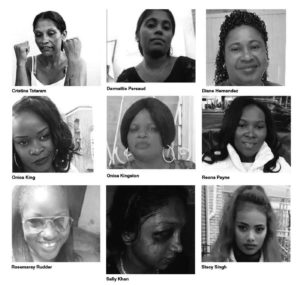For Guyana to reduce the incidence of domestic violence, which eventually results in fatalities and disrupted homes, education must be provided at every institution to inform people about the magnitude of this type of abuse.
These were the sentiments shared by women’s rights activist, Joy Marcus, of Red Thread, who addressed this issue in light of the high domestic violence rate, which Guyana has faced over the past few months.

Speaking with Guyana Times International on Monday, Marcus noted that a different approach was essential, given the fact that the rate of domestic violence was still on the rise despite many initiatives that were established in the past.
“The thing is that despite a lot of work that has been done by individuals, by Government and by organisations, domestic violence is still a phenomenal project. There is need for a lot of educational work on domestic violence. We think that everybody knows about it, but that’s not really true. A lot of people experiencing this still think today that it’s a norm and that it’s something that has to happen,” she explained.
The activist noted that the issue should be dealt with in the household where young children, especially boys, should be educated on the topic of domestic violence. Thereafter, further sensitisation should be done in schools to ensure that moral actions are created.
“In spite of all that has happened, there’s still a lot to be done. We need to look at it from the household. It must be felt from all [of] the institutions that are set up to deal with it – the police station, the court, Social Protection (Ministry), Child Care and Protection Agency, and all the other institutions,” Marcus said.
“As parents, we need to start teaching our children to be respectful of women so that when they grow up, they must understand that these are not acceptable behaviour. I think that once that happens, we should have some more work in the school as well about domestic violence,” she added.
Emphasis was also placed on the fact that many Guyanese were not completely aware of the Domestic Violence Act, which consists of laws and regulations that specifically focus on domestic violence victims.
“I think one of the main things is that a lot of people still don’t know about the Domestic Violence Act. Persons in domestic violence situations need to be aware that there is more than just a law and what the Police will do in terms of taking actions. They need to know that there is a place that they can go and we need to advocate the Act.”
Marcus stated that if people were not aware of the Act, then they were more than likely to return to an abusive household or relationship, which can later prove to be fatal.
Along with increased education in learning institutions, she believes that formal dwellings should be set up whereby victims can escape threatening situations and restart their lives. Residents of the communities should also report instances where women are being subjected to violence by their spouses.
“We should have places where victims are able to live on their own and get back on their foot along with counselling and the support that is necessary. A lot of times when you’re in that situation, you can’t even think, especially when you have children. And most of the time, you would put aside yourself and think about the children. They think about where they’re going to go after they leave. They should be able to know that they can go somewhere, so it’s important to have these institutions established.
“The thing is that we all have to understand that domestic violence is all of our business and that we cannot wait for it to happen to us before we take action. I think that people in the community should know that if it is happening to a person, it is not just affecting that person but everyone residing there,” she added.
These actions should be made along with the efforts that have been made in the past to reduce domestic violence.
For 2018 so far, it was reported that seven Guyanese women were killed while three were brutalised at the hands of their partners. Most of these cases stemmed from domestic violence.
Public Security Minister Khemraj Ramjattan on addressing the issue had stated that dealing with domestic violence required inter-agency collaboration rather than just law enforcement.
Related posts
-

Ramkarran says GECOM’s 15-day deadline to announce results “not mandatory”
The 15-day deadline referenced in the Representation of the People Act, within which the Guyana Elections... -

Linden man knifes woman and lover to death in jealous rage
A man is in Police custody after he reportedly stabbed his ex-lover and her new spouse... -

Mottley says “there are forces that do not want to see votes recounted”
Chairperson of the Caribbean Community (Caricom), Barbadian Prime Minister Mia Mottley, in a strongly-worded statement said...
